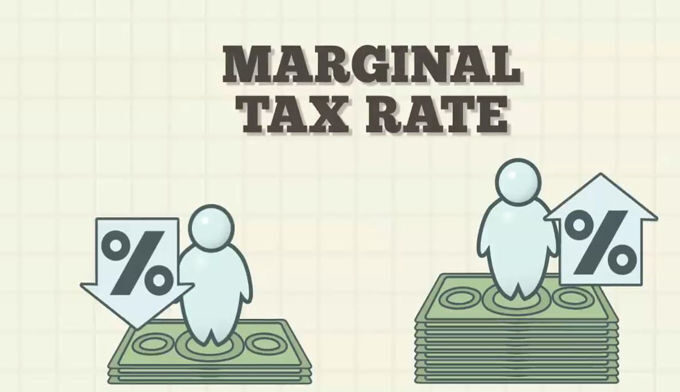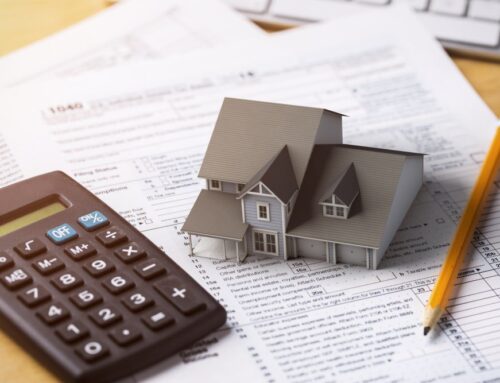Understanding your financial needs and sufficiency is crucial when it comes to financial planning. One key aspect of this is getting an accurate estimate of how much income tax, marginal tax, you might owe each year, as this will help you better understand how much of your income you can save, spend, and invest.
If you live and earn your income in Canada, you are required to file a personal income tax return each year. As part of financial planning, it’s important to understand how your money is taxed. The federal government of Canada determines the amount of tax you should pay based on your income.
In Canada, the tax system works on a marginal tax rate structure, which means your income is divided into several categories or tax brackets. Your income is taxed at a different rate depending on the tax bracket you are in, and the tax rate for each portion of your income increases as your income surpasses the previous bracket.
Also Read: Everything about making taxes easier
Understanding the Federal Tax Brackets in Canada
The federal tax bracket is established based on your taxable income, which is typically the amount of money you earn in a year after deducting applicable tax deductions, credits, and exemptions.

What does Marginal Tax Rate Mean and How Does it Affect You Financially?
The marginal tax rate refers to the tax percentage that you pay on each extra dollar of income earned. In Canada, the federal marginal tax rate is progressive, meaning that it increases as your income grows. This taxation method is designed to tax individuals based on their earnings, with low-income earners paying a lower percentage of their income in taxes than high-income earners.
Understanding your marginal tax rate is essential for financial planning, as it can help you estimate how much money you’ll have left for spending, saving, and investing. This knowledge is particularly helpful for retirement and RRSP planning. For high earners, the percentage can be as high as 53%, which means that for every additional $100 earned, $53 will be deducted as taxes, leaving them with just $47.
On the other hand, low and middle-income earners pay a lower rate, usually between 20% and 40%, depending on their income. As a result, the next $100 in income earned by a household with a low or moderate income will only be subject to $20 to $40 in income tax deductions.
Also Read: Are Gifts To Customers And Business Associates Deductible Expenses?
How to Calculate Marginal Tax Rates in Canada
To calculate your marginal tax rate in Canada, you can visit the Canada Revenue Agency (CRA) website to find the federal, provincial, and territorial tax brackets. Once you have these rates, you can apply them to the different portions of your income to determine your taxes owed.
As an example, in Manitoba for the year 2021, the combined federal and provincial marginal tax rates are as follows: 10.8% on the first $33,723 of taxable income, 12.75% on the amount over $33,723 but under $72,885, and 17.4% on any amount beyond $72,885.
For instance, if you earn $50,000 annually in Manitoba, your federal and provincial taxes combined will amount to around $13,271.

In this blog, we have learned about the Marginal Tax rate in Canada and how it is calculated. We also discussed how the tax system in Canada is progressive, meaning that your income is separated into different categories and taxed at varying rates based on your tax bracket. The marginal tax rate is the tax rate you pay on every additional dollar of income. By knowing your marginal tax rate, you can estimate how much money you will have available for spending, saving, and investing. With this knowledge, you are better equipped to file your taxes accurately.
What is the gas tax rebate in Canada?
The world market has experienced several disruptions due to the pandemic and the ongoing war between Russia and Ukraine (include gas tax). Canada, in particular, was hit hard with an unexpectedly high inflation rate of 8.1% in June, the highest since 1983. This inflation rate had a significant impact on the lives of Canadians.
Furthermore, Canada has been a strong supporter of Ukraine in the ongoing conflict with Russia, which has led to significant price fluctuations around the world. Additionally, Canada has been facing significant shortages in fuel and oil, leading to increased demand and pressure on the government. In response, the government raised gas prices to reflect the changes in world market prices, affecting both businesses and consumers. As a result, many small businesses have also had to raise their prices to account for the high cost of transportation.
Tax Filing in Chatham >>
What the gas tax is?
A gas tax is a levy imposed by the government on the use of fuel, with the intention of using the funds to improve transportation infrastructure, such as roads and bridges. In addition, the gas tax break, also known as the gas tax holiday, is a temporary measure in which the government suspends the collection of taxes from citizens to provide them with cheaper fuel and related facilities.
In the United States, President Joe Biden implemented a three-month gas tax holiday to reduce the price of fuel, which has been a relief for citizens paying an average of $4-$5 per gallon. This move was well-received by political figures and leaders, and many Canadians also called for similar action to reduce gas prices.
However, Canada’s situation is slightly different, with an inflation rate of 8.1% in June, the highest since 1983. This has caused businesses to raise their prices due to high gas prices, putting pressure on citizens who are demanding immediate relief. The finance minister and Deputy Finance Minister Chrystia Freeland assured Canadians that they are working to provide more affordability and reduce the cost of living, and the gas tax break is being considered.
The Conservative Party is demanding immediate relief and a cut in GST and sales tax to make living more affordable for low-middle-class families who are the most affected by high inflation and gas prices. Freeland referred to the Federal Budget Plan 2022, the “Affordability Plan,” which includes $8.9 billion in support for Canadians.

Also Read: Are tipping subject to taxation in Canada?
In conclusion,
The ongoing global pandemic and the conflicts in Russia and Ukraine have caused significant disruptions in the world economy. The soaring gas prices in Canada have reached an all-time high, and the trend is seen across the globe. The US government has introduced a new measure to ease the burden on its citizens by providing a temporary gas tax break. Canada, grappling with high inflation and affordability issues, is also considering implementing a similar strategy. Instead, they are placing more emphasis on the “affordability plan” outlined in the 2022 federal budget.
Recent Posts
FAQ
What is the meaning of the term marginal tax rate in Canada?
In Canada, the term "marginal tax rate" refers to the tax rate that is applied to each additional dollar of income earned by an individual. The country's tax system is considered progressive, which means that the more an individual earns, the higher the tax rate they are required to pay. Tax brackets are established by the federal and provincial governments based on taxable income, and they are adjusted each year to account for inflation and other factors.



